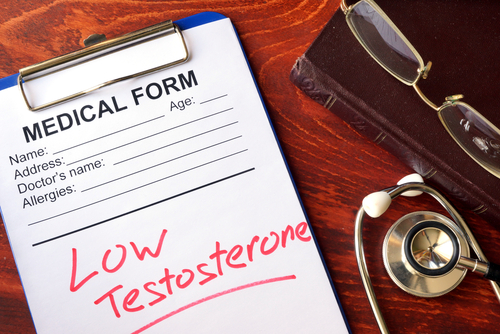Myovant Sciences has filed an application with the U.S. Food and Drug Administration (FDA) seeking approval of relugolix to treat men with advanced prostate cancer.
The new drug application (NDA) proposes a single daily dose of 120 mg, given as an oral tablet, based on positive results from the Phase 3 HERO trial (NCT03085095, still recruiting in China).
“The submission of our NDA for prostate cancer is a major step towards providing a one pill, once a day potential new treatment option for men with advanced prostate cancer,” Lynn Seely, MD, CEO of Myovant Sciences, said in a press release. “[W]e believe relugolix, if approved, could provide men an important oral alternative to leuprolide injections, the current standard of care.”
Treatment for advanced prostate cancer typically involves androgen deprivation therapy (ADT), which lowers blood levels of testosterone — a hormone known to stimulate the growth of prostate cancer. These reduced levels (below 50 nanograms per microliter of blood) are commonly referred to as castrate levels.
Common ADTs come with limitations. An example is leuprolide acetate (marketed under the brand names Eligard and Lupron), which may cause an initial rise in testosterone levels that can worsen symptoms and delay testosterone recovery. Such therapies also require regular injections.
Relugolix is a different form of hormone therapy, as it blocks the gonadotropin-releasing hormone (GnRH) receptor in the brain to inhibit the release of hormones that stimulate testicular testosterone production.
The global HERO trial was designed to evaluate whether relugolix outperforms standard leuprolide acetate at lowering testosterone to castrate levels in men whose advanced prostate cancer is sensitive to ADT. Relugolix was given as a single loading dose of 360 mg, followed by 120 mg tablets once daily.
The study aimed to enroll 1,100 men on continuous ADT for at least one year.
In 2019, Myovant announced that the trial had met its primary efficacy goal, with 96.7% of the participants on relugolix and 88.8% of those on leuprolide acetate achieving sustained castration levels through week 48.
In addition, the trial met several secondary goals. Relugolix use was seen to suppress levels of testosterone, the prostate cancer marker prostate-specific antigen, and follicle-stimulating hormone (which induces testosterone production) faster and more effectively than leuprolide.
Adverse events were similar for relugolix (92.9%) and leuprolide (93.5%). Major cardiovascular events — including non-fatal heart attack and stroke, and death for any reason — were reported in 2.9% of men taking relugolix and 6.2% of those taking leuprolide acetate.
“We made the decision to prioritize this NDA submission and potentially accelerate the availability of an oral treatment option for men with advanced prostate cancer,” said Juan Camilo Arjona, MD, chief medical officer of Myovant.
“This is of particular importance in the current environment and for the foreseeable future due to COVID-19 and the need for men with advanced prostate cancer to go to a clinic to receive injections in person,” Arjona said.
Another secondary goal of the HERO study is the amount of time until progression of PSA levels while castrated, or death due to any reason. Data for this goal will come from 430 men with metastatic prostate cancer, and is expected to be ready before late September.
Myovant also expects to file next month for FDA approval of its once-daily formulation that includes relugolix 40 mg, estradiol 1.0 mg, and norethindrone acetate 0.5 mg for women with heavy menstrual bleeding associated with uterine fibroids.

